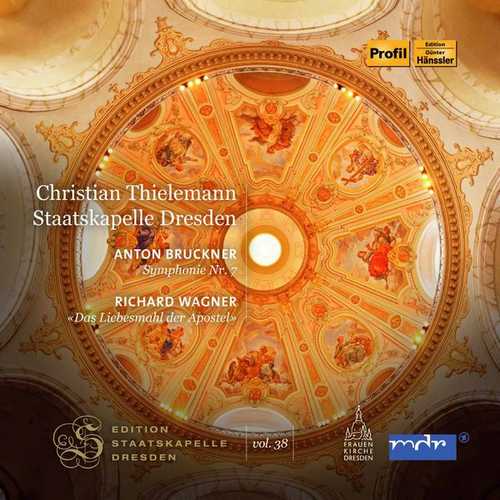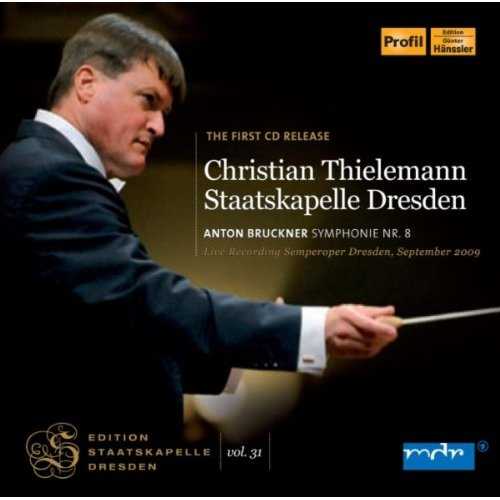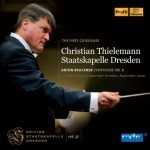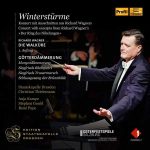
Composer: Anton Bruckner, Richard Wagner
Orchestra: Staatskapelle Dresden
Conductor: Christian Thielemann
Number of Discs: 2
Format: FLAC (tracks)
Label: Profil Medien
Catalogue: PH15013
Release: 2016
Size: 425 MB
Recovery: +3%
Scan: cover
CD 01
Bruckner: Symphony No. 7 in E Major
01. I. Allegro moderato
02. II. Adagio. Sehr feierlich und sehr langsam
03. III. Scherzo: Sehr schnell
04. IV. Finale: Bewegt, doch nicht schnell
CD 02
Wagner: Das Liebesmahl der Apostel, WWV 69
01. Gegrüßt seid, Brüder, in des Herren Namen!
02. Seid uns gegrüßt, ihr lieben Brüder
03. Allmächt’ ger Vater
04. Seid getrost! Ich bin euch nah
05. Welch Brausen erfüllt die Luft?
German conductor Christian Thielemann chose Anton Bruckner’s magnificent Seventh Symphony to mark his inauguration as principal conductor of the Staatskapelle Dresden in 2012, the live recording of which is included in this release. One of Bruckner’s most famous symphonies, his Symphony No. 7 in E major was written between 1881 and 1883, and received its premiere on December 30, 1884. The work is dedicated to Ludwig II of Bavaria. This album couples Bruckner’s symphony with Richard Wagner’s “Das Liebesmahl der Apostel.” This work for orchestra and male chorus is seldom performed, and is widely overshadowed by Wagner’s more famous works.
As one of the most popular of all Romantic symphonies, Anton Bruckner’s Symphony No. 7 in E major is clearly the big draw on this 2016 two-fer from Profil, though its companion piece, Richard Wagner’s Das Liebesmahl der Apostel (The Love-Meal of the Apostles), is well worth having because it is seldom performed. Christian Thielemann leads the Dresden Staatskapelle in the symphony, giving a fairly traditional interpretation of the 1944 edition of Robert Haas. The warm lyricism and radiant sonorities of this piece are emphasized, and Bruckner’s familiar music is lovingly treated by the orchestra. For Das Liebesmahl der Apostel, Thielemann directs the combined male voices of seven German and Czech choirs, though much of Wagner’s “Biblical scene” is subdued and reflective, and the recording gives little indication of the placement of the choirs in the concert hall. (This may reflect the weak effect the multiple choirs had at the 1843 Dresden premiere, which disappointed Wagner.) Any recording of Das Liebesmahl der Apostel by itself would be unlikely to attract attention, so pairing it with Bruckner’s Seventh is shrewd marketing. But Thielemann deserves credit for reviving this neglected work, and collectors will want it because it is a rarity.



